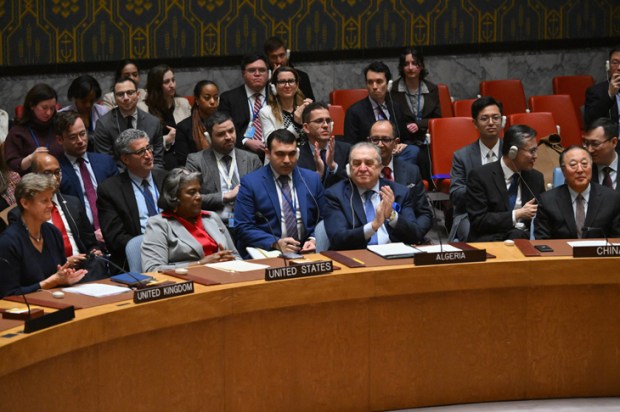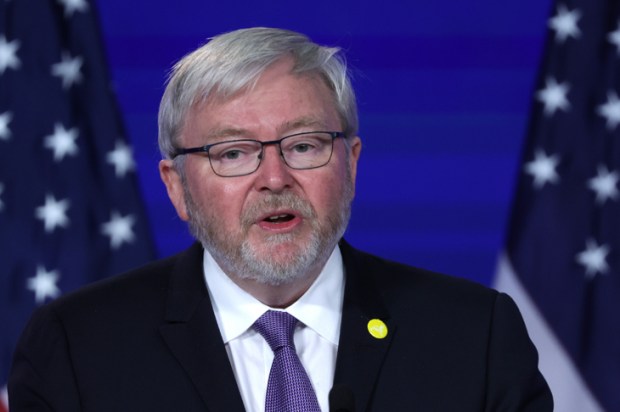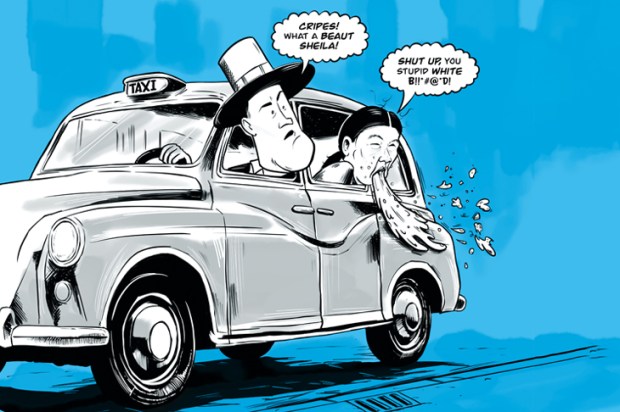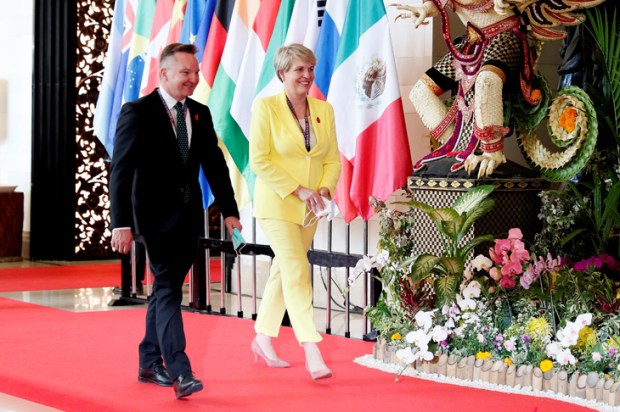Decisiveness. Perseverance. Effectiveness. These are the three key words being bandied around by the world’s top diplomats to describe Australian leadership in the United Nations following the tragedy of the downing of MH17.
Indeed, these three words themselves are as good a definition as one might hope for to describe the art of national political leadership. The ability to take a stance, to stick with it and to see it through to successful implementation is the basic skill that a well-functioning and prosperous democracy should expect of its leaders. Alas, in Australia in recent times such talents have been in short supply. Where Kevin Rudd proved incapable of achieving a single one of these admirable qualities, his nemesis Julia Gillard mistook the first two for pig-headed stubbornness and was not remotely concerned with the third.
Amusingly, in the face of repeated leadership failures, the Left nowadays prefer to seek solace in the lofty, trite and utterly self-deluding term ‘compassionate’, a political word that any self-respecting dictionary should by now have realised is devoid of any genuine ethical or moral value.
Not surprisingly, ‘decisiveness’, ‘perseverance’ and ‘effectiveness’ are also three key words that sum up the leadership style of the Prime Minister. From the moment he toppled Malcolm Turnbull in late 2009, Tony Abbott has acted decisively, persevered against the odds and proven capable of effectively delivering on his commitments. Only ten months into the top job, the boats have stopped, the carbon tax is gone and the budget problems are being addressed (albeit hampered by a volatile and immature Senate). That Mr Abbott is being aided by two particularly strong performers, Scott Morrison and Julie Bishop, who themselves display many of these same qualities of leadership, is testament to Mr Abbott’s mastery of one of the other key talents that his predecessors lacked: the ability to bring out the best in those around you.
Which brings us to Malcolm Turnbull and Joe Hockey, the two other candidates in the 2009 Liberal leadership spill. Malcolm Turnbull’s continuing popularity in the polls is, much like Kevin Rudd’s, no indicator of genuine leadership ability. Indeed, his own brief stint as Liberal leader was marred by Labor-style chaos, confusion and ineptitude. Much as during Mr Turnbull’s leadership of the failed Republican movement a decade before, those tantalising three qualities mentioned above were noticeable only by their absence.
Similarly, Joe Hockey’s jokey blokey-ness and all-round-good-guy persona, while being of genuine benefit to the government and talkback hosts alike, is no substitute for proper leadership skills. Intriguingly, and somewhat foolishly, the Treasurer has recently allowed his own Rudd-like indecision surrounding an ETS during the Liberal leadership contest to be re-examined in an authorised biography. Madonna King’s Hockey: Not Your Average Joe has appeared with what can only be described as awkward timing for any potential long-term leadership ambitions he may still harbour.
Mr Hockey chose to build his case for leading the Liberal party in 2009 on a bizarre plan to offer his colleagues no leadership at all on the vexed issue of pricing carbon. This peculiar approach he falsely compared to John Howard’s conscience vote in the 1999 republican referendum. As Ms King details: ‘Hockey had always supported an ETS, but he also wanted to respect those in the Coalition who didn’t. All weekend, he vacillated…’ According to his wife, Melissa Babbage:
The Left was trying to get him to do something; the Right was trying to get him to do something. And he was trying to reconcile the two. The great lesson of the great leaders is just dogged conviction. Look at Howard. Look at Hawke. Look at Keating. Just dogged conviction. I’m not saying he didn’t have conviction, but because he was trying to do the right thing by the party and bring them all together, something got lost in that.
Ms King concludes: ‘Hockey’s eventual stance [was] a wishy-washy one in which MPs would be allowed a conscience vote on the ETS legislation.’
Although the comparison is unfair and the timing unfortunate, being reminded of Mr Hockey’s weak ETS approach stands in stark contrast to Mr Abbott’s strong global leadership on MH17. However, it is during unpredictable events, often tragic ones, rather than in party-room balancing acts that the qualities of leadership shine clearest.
As the world rightly praises Mr Abbott’s clarity of purpose and moral fortitude in facing down Vladimir Putin, for the first time since the Howard era Australia can boast of having a leader.
Got something to add? Join the discussion and comment below.
Get 10 issues for just $10
Subscribe to The Spectator Australia today for the next 10 magazine issues, plus full online access, for just $10.
You might disagree with half of it, but you’ll enjoy reading all of it. Try your first month for free, then just $2 a week for the remainder of your first year.














Comments
Don't miss out
Join the conversation with other Spectator Australia readers. Subscribe to leave a comment.
SUBSCRIBEAlready a subscriber? Log in